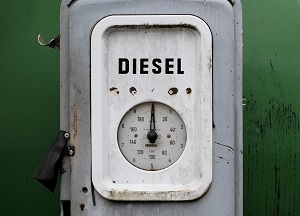![]() Dependency on Fragile External Systems is a news and information topic monitored and covered by: Prepper Watch – Homesteading
Dependency on Fragile External Systems is a news and information topic monitored and covered by: Prepper Watch – Homesteading
Introduction
In today’s interconnected world, homesteads and rural preppers often rely more than they’d like to admit on external systems—especially for fuel and medications. A global crisis, supply chain failure, or geopolitical conflict can quickly cut access to essentials like gasoline, diesel, or pharmaceuticals. These fragile dependencies are often invisible—until they’re broken. Preparing now is not just smart—it could be lifesaving. This blog explores how to reduce reliance on vulnerable systems and build long-term self-sufficiency.
The Problem with Fuel Dependency
Homesteaders use fuel for everything from tractors and generators to water pumps and transportation. But petroleum supply chains are among the most geopolitically sensitive in the world. Wars, blockades, economic sanctions, or even cyberattacks can disrupt them overnight.
Consider:
- Gas shortages during hurricanes.
- Diesel price spikes during international conflicts.
- Transportation breakdowns due to fuel rationing.
This dependency makes even the most remote homestead vulnerable. Without fuel, food can’t be grown, water may not be pumped, and critical equipment can’t run. Transitioning away from fossil fuel dependency is not a luxury—it’s a necessity for preppers.
Strategies to Reduce Fuel Dependency
- Transition to Manual or Low-Tech Alternatives
- Use hand tools where possible (scythes instead of mowers, hand pumps instead of electric ones).
- Invest in pedal-powered or animal-powered equipment.
- Diversify Power Sources
- Install solar panels for low-voltage needs (lights, radios, small appliances).
- Consider wind or micro-hydro setups if your geography allows.
- Use wood gasifiers or biodigesters to generate fuel locally.
- Fuel Storage and Rotation
- Store stabilized gasoline and diesel in approved containers.
- Rotate fuel stock every 6-12 months to prevent degradation.
- Use additives like PRI or Sta-Bil for long-term storage.
- Optimize Fuel Use
- Group chores to minimize engine starts.
- Maintain engines for efficiency.
- Switch to electric tools powered by renewables where possible.
Dependency on Pharmaceuticals: A Silent Threat
Modern healthcare revolves around prescription medications. Antibiotics, blood pressure drugs, insulin, painkillers—all essential for survival—are often manufactured overseas and shipped through complex supply chains.
A disruption could result in:
- Life-threatening lapses in treatment.
- Antibiotic shortages during a pandemic.
- Delays in resupply due to customs or border closures.
This dependency is particularly dangerous because there are few short-term solutions. We’ve been conditioned to expect immediate access to medicine—but that may not always be the case.
Building Medical Independence: Alternative Strategies
- Stockpiling Essentials Safely
- Work with a physician to legally obtain extended supplies of critical meds.
- Use trusted services like Jase Medical to secure emergency antibiotics.
- Store medications in a cool, dry, dark place and monitor expiration dates.
- Learning Herbal and Natural Remedies
- Grow herbs like echinacea, calendula, garlic, and yarrow.
- Learn how to make tinctures, salves, teas, and poultices.
- Build a home apothecary with dried herbs and oils.
- Telemedicine and Off-Grid Health Literacy
- Download offline health manuals and first aid guides.
- Take community courses in CPR, wilderness medicine, or herbalism.
- Use solar-powered or battery devices to maintain telehealth access when possible.
- Alternative Medicine Storage and Substitutes
- Understand natural alternatives for common medications (e.g., hawthorn for blood pressure, turmeric for inflammation).
- Learn the risks and contraindications of herbal substitutes.
Food and Agriculture: Tied to External Inputs
Fertilizers, seed stock, and feed often come from far away. Even organic farms can rely on inputs like bone meal, neem oil, or diatomaceous earth that aren’t locally sourced.
How to prepare:
- Save your own seeds and use heirloom varieties.
- Compost heavily and rotate crops to reduce fertilizer needs.
- Grow feed crops for your animals (sunflowers, oats, legumes).
- Explore natural pest control and homemade solutions.
Water Systems and the Hidden Grid
Many off-grid systems still rely on powered pumps. In a grid-down situation or fuel shortage, access to water can vanish quickly.
How to become resilient:
- Install manual hand pumps as backups.
- Use rainwater harvesting and gravity-fed irrigation.
- Maintain high-quality water filters and purification tablets.
- Learn to build sand filters or charcoal filtration systems.
Case Study: The 2021 Texas Freeze
During the unexpected Texas freeze, many households—rural and urban—lost access to heat, water, fuel, and medications. Even short-term grid failures had long-lasting impacts, highlighting just how quickly modern systems can crumble.
Lessons learned:
- Dependence on centralized systems is dangerous.
- Redundancy saves lives.
- A multi-layered strategy beats single-point solutions.
Building a Local Resilience Network
Even the most self-sufficient homestead benefits from trusted neighbors. Collaboration can reduce reliance on fragile supply chains.
Steps to take:
- Form or join local barter networks.
- Share surplus seeds, medicine, or fuel.
- Coordinate planting to create diversity and backups.
- Pool resources to invest in shared equipment or training.
Creating a Redundancy Plan
Use this layered model to evaluate your vulnerabilities:
- Primary – Grid or store-bought (e.g., gasoline, pharmacy meds)
- Secondary – Stored supplies (e.g., fuel cans, medicine stockpile)
- Tertiary – Renewable or natural (e.g., solar, herbal remedies)
- Community Backup – Shared assets and mutual aid
Write out plans for each critical system: power, water, food, medicine, transportation, and security. Identify where you are weakest and start improving from there.
Conclusion
The true spirit of homesteading and prepping is independence—not isolation, but freedom from fragile dependencies. Every tool you master, every local system you build, and every external input you replace with something sustainable is a step toward lasting resilience.
Relying on diesel, prescription meds, or external food systems leaves you vulnerable. But recognizing the risks today allows you to create a future where you don’t just survive disruptions—you thrive despite them.

